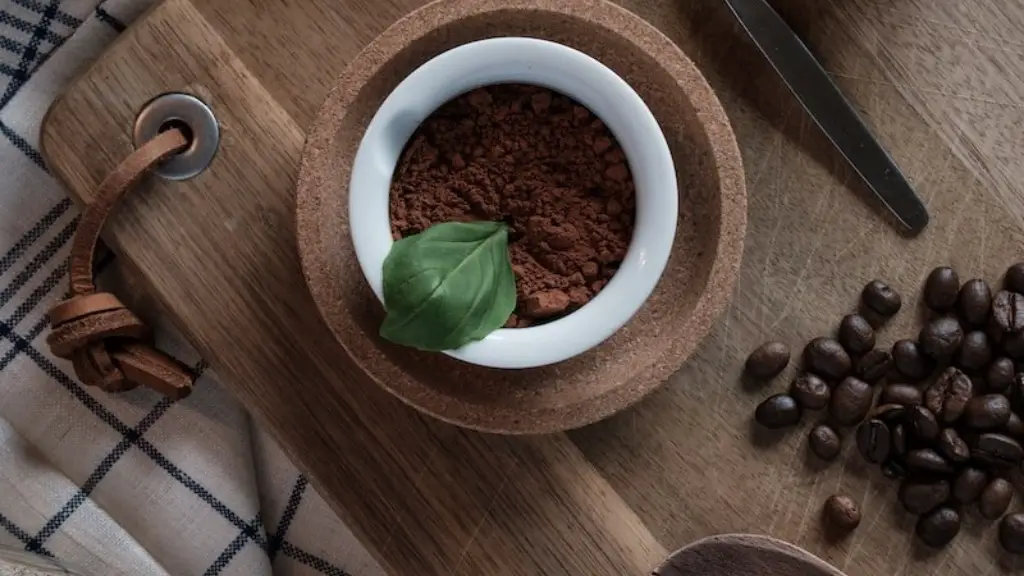Most people feel a surge of energy after drinking a cup of coffee, but why does it make your heart palpitate? Caffeine, the primary ingredient in coffee, is a stimulant and is known to cause your heart rate to rise. This effect can be strong in people who don’t drink coffee regularly, leading to heart palpitations.
People with certain medical conditions, such as heart disease or high blood pressure, may benefit from keeping their caffeine intake low or avoiding coffee altogether. People with coffee sensitivity are especially vulnerable and can experience heart-related symptoms shortly after consuming the beverage. Other lifestyle factors, such as lack of sleep, excessive stress, and alcohol consumption can also lead to heart palpitations.
Drinking coffee itself is not dangerous, but if you feel heart palpitations, it is best to get checked out by a doctor to rule out any underlying medical issues. Your doctor may recommend cutting back on your caffeine intake, or switching to a decaffeinated beverage.
At the same time, there are certain benefits associated with coffee consumption. Studies have found that two to three cups of coffee a day can reduce the risk of cardiovascular disease and stroke. Moderate consumption of coffee has also been linked to lower risk of type 2 diabetes and Parkinson’s disease.
The way you take your coffee matters too. High amounts of sugar and cream can make your heart rate increase or fluctuate. If you drink black or with just a small amount of creamer, the risk of heart palpitations is much reduced. Many people prefer adding a natural sweetener, such as stevia, or drinking cold brew or iced coffee instead of regular hot coffee.
Overall, most healthy people should be able to enjoy coffee without experiencing heart palpitations, as long as they drink it in moderation. Speak to your doctor if you experience any symptoms or feel uncomfortable drinking coffee.
How Much Coffee is Too Much
It is recommended that adults stay within the 400 milligrams of caffeine per day for optimal heart health. Most studies about caffeine consumption state three to five cups of coffee are considered moderate intake. If you are typically sensitive to caffeine, staying within two cups per day is considered more beneficial. If you are pregnant or have a medical condition, it is advisable to talk with your doctor before including coffee in your diet.
Caffeine tolerance also varies widely among individuals, and can be dependent on other existing medical conditions or medications you may be taking. Too much caffeine can lead to higher blood pressure, restlessness, nervousness, insomnia, headaches, nausea and excessive sweating. Caffeine should also be used with caution if you are prone to anxiety, as it can induce panic attacks. If you are experiencing any of these symptoms after drinking coffee, it is a clear sign to cut back on your consumption.
The Pros and Cons of Coffee
Coffee consumption has its own pros and cons; likewise, it can be beneficial for some people, while for others it can be detrimental. Some of the benefits of drinking coffee include increased energy, improved alertness and concentration, lower risk of type 2 diabetes and Parkinson’s disease, and improved cognitive performance.
On the other hand, too much coffee has the potential to cause sleep deprivation, dehydration, anxiety, heart palpitations, and even addiction. Coffee can also interfere with the absorption of calcium, iron, and other essential nutrients, so it is best to enjoy it in moderation.
Tips to Enjoy Coffee with No Risk
Making simple changes to your coffee drinking habits can go a long way towards avoiding any potential health problems related to caffeine intake. If you are prone to heart palpitations, consider drinking hot teas, herbal teas and decaffeinated coffee. If you must drink caffeinated coffee, look for lighter roasts and not espresso. Also be mindful of sugar and cream content and opt for black coffee or an all-natural sweetener. Meanwhile, if you experience other symptoms such as headaches, nausea or dehydration, it is a sign to cut back on your coffee and/or switch to a decaffeinated alternative.
Timing is Everything
The timing of when you drink your coffee can make a difference too. To maximize the benefits of caffeine, you should drink no more than 2-3 cups of coffee per day and take your last cup of coffee at least 6 hours prior to bedtime. Those who are extra sensitive to caffeine should avoid taking it after 2 pm. This way, the caffeine content in your body will have time to dissipate until bedtime.
There’s More To It Than Just Caffeine
Coffee also contains nutrients such as riboflavin, pantothenic acid and magnesium which can enhance energy levels, mood and focus. Unlike energy drinks, coffee does not contain any artificial sweeteners or chemicals, so it is often a healthier option for those looking for an energy boost. Moreover, drinking your coffee black or with a small amount of natural creamer is a great way to maximize its health benefits.
Conclusion
Many people experience heart palpitations after drinking coffee, but this doesn’t mean you should avoid the beverage altogether – just be mindful of your consumption and lifestyle. Drink in moderation and always opt for black or cold brew coffee, and be aware of caffeine content and drink timing. Talk to your doctor if you experience any symptoms or feel uncomfortable drinking coffee.



